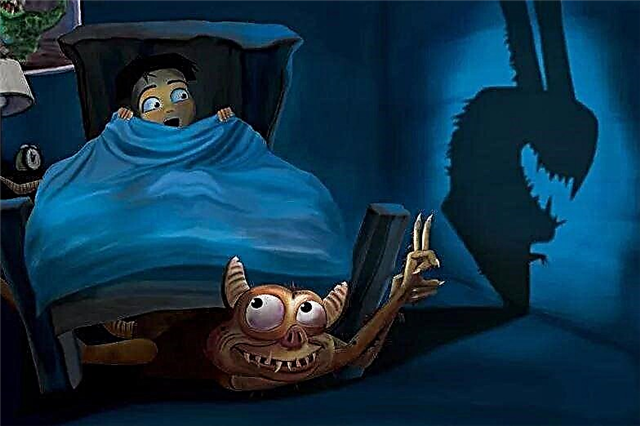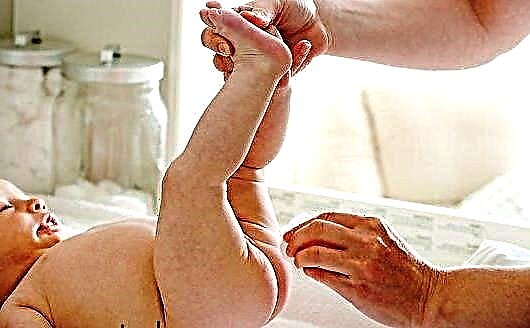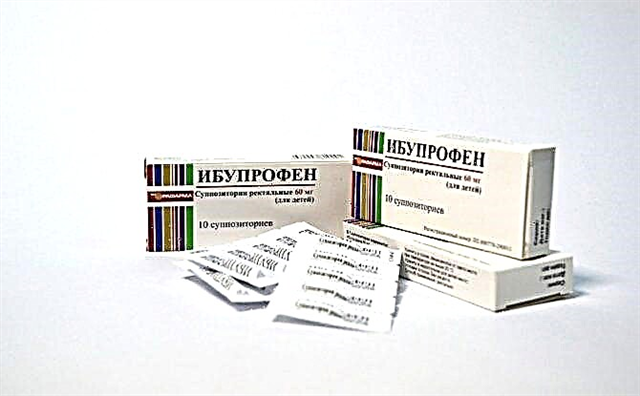
All parents try to instill honesty in their children. This quality is included in the list of standard human values. And what is the surprise of parents when the little one, having barely learned to speak, begins to lie? Adult logic immediately draws unhealthy perspectives to us: first a small lie, then a big one, then a pathological one, what will grow out of this person?
Smart and serious adults, let's not dramatize the situation! A child's lie is a cry for help. Your child needs your support. In addition, the child's lies always, in all cases without exception, have a positive intention. This sounds a little strange, I understand, but I will try to prove it to you.

And I'll start with us adults. Tell me, which of us is not lying? According to statistics, which were compiled by the same notorious British scientists through a large-scale sociological study, people in an average life deceive each other at least 88 thousand times! An adult thus cheats about 4 times a day. This is an average, some do it more often.
Men are more prone to deception - they "hang noodles" more than 5 times a day, women - 3-4 times. Silence of truth and secrets (of which each of us has a wagon and a small cart) are also forms of lies.
It turns out that humanity is hopeless? No. Lying is a defense mechanism that helps each of us adapt to society. Moreover, a lie is quite comfortable not only for those who lie, but also often for those who were told a lie.
So, if adults are lying, what do we want from children? The only difference is that adults know how to use lies as a useful tool for themselves. Most children use it as a shield. In addition, lying helps in the development of a child's psyche.

What untruth can be considered harmless, and which one will have to fight?
Types of lies
A prominent American expert in the psychology of emotions Paul Ekman divided lies into several types:
- Justified lie. A measure necessary in some circumstances.
- Lie "white". Deception for the good. It is designed to defuse a tense situation or give someone positive emotions.
- A scam. Lies are selfish, for personal gain.
- Boasting. This is an exaggeration of one's own significance, capabilities, and social status.
To this list of an American doctor of psychology, I would add more fantasy. But they are peculiar to babies, are harmless in their essence, and even benefit - they develop imaginative thinking.

So what is the positive intention behind the lie? A justified lie is somewhere near and the instinct of self-preservation. This is protection. "White" lies have the goal of making someone agreeable, this is a positive intention. The desire to receive money, material values, love, respect of others is also positive. That is why both adults and children lie. Thus, it is foolish to condemn for a lie, because the person wanted the best! But it is by no means possible to disregard children's lies, otherwise a worthy person will not really grow out of a child.
Why is the child lying?
- Exaggerated demands are made on him. And the higher the level of expectations of parents, the more often and more masterfully the child lies, so as not to disappoint the idealizing parents with his real actions.
- The child has a crisis of trust in relations with loved ones. This is the most common cause of childhood deception. Usually it is not alone, but can be traced in all cases when the child tells a lie.
- The child is raised in excessive severity. And the kid is constantly lying to avoid another punishment for something.
- The child loves his parents very much. Yes, no matter how strange it may sound, it is tender affection that sometimes pushes the child on the path of untruth. If you admit the statements that “his pranks will soon bring you to a coffin” or grab your heart at the sight of broken dishes, painted wallpaper and glue spilled on the carpet, the baby will quickly remember this and will hide the truth and tell fables to preserve your health and mental equilibrium.

Did you recognize your child on this list? Then you are already halfway to success in dealing with falsehood. After all, knowing the reasons for deception helps to eliminate the problem itself.
Age features of children's lies
2-4 years
At this tender age, all the crumbs are lovely dreamers. Children are just learning to create mental images, and often pass off what they have invented as real. So, the little one can ecstatically tell you how he saw a flying cat or a pink elephant in the morning. Do not interfere with the dreamer. Do not suppress his fables at the root. After all, it is at this age that you can destroy a genius in a growing man.
Help him fulfill his fantasies. Offer to draw a flying cat or pink elephant and pretend that you believe in their existence.

4-5 years old
At this age, babies are not yet able to distinguish between reality and falsehood. They sincerely believe in your lies, and are already starting to practice theirs. Most often this happens to guys who have faced disapproval or censure from adults. They lie because they are afraid of losing love. For example, a kid, when asked if he has removed the toys, confidently says that he has removed.
Despite the fact that bears and cars continue to roll around in artistic disorder, the baby does not want to upset his mother, who expects help from him in cleaning. Talk to your child in confidence. Make contact. Try to be friendly. Promise not to punish if he tells the truth.
And most importantly, make it clear to the baby that everyone loves and appreciates him. When he learns this, the need to deceive will disappear by itself.

7 years
At this age, significant changes occur with the child. Boys and girls go to school, and now they need personal space - a place, a room, a corner where they can be masters. If he is not there, the child is lying, hiding behind it like a shield. Help your child organize such a space. Naturally, within reason.
And also explain that the independence that has appeared in him is not at all permissiveness. Most likely, the offspring will repeatedly "try your strength", including with the help of lies.

8 years
At this age, the child's desire to please others at any cost is very noticeable. For now, the opinion of his parents remains the main thing for him, therefore lies will be directed at mom and dad, the purpose of which is to hide his mistakes and failures from loved ones. This is how students hide from their relatives the fact of receiving a bad grade.
Talk to the child, he is already able to understand that a lie is a temporary salvation, and everything secret becomes apparent. Do not make him guilty, do not try to sort things out.

9-10 years old
The growing child often begins to lie in order to gain a more socially important place among their peers. He already perfectly understands the difference between truth and falsehood. But how inspiringly he tells tales! You will listen!
Children of this age tend to invent stories for their classmates about the wonderful and prestigious work of their parents, luxurious living conditions, children boast of non-existent "cool" toys and gadgets and personal acquaintance with movie or sports stars. What to do? By and large, nothing.

Think back to yourself at this age: you probably did the same! Just control the situation so that your son's or daughter's lies do not overstep the boundaries of reason and do not harm others.
11 years
The reason children lie at this age usually lies in a neglected crisis of trust in the family. And also there may be a consequence of strict education. Lower the level of requirements, think about why the child does not trust you. It is not too late to correct the situation - independently or with the support of a specialist.
If the lie is not defeated now, it will be more difficult further, because the teenager requires a certain amount of independence and will try to get it at any cost, even if it is not true. Do not delay and sign up with the whole family for a consultation with a psychologist or psychotherapist.

12 years old
Your teen has already set personal boundaries. Now he will persistently expand them. If parents try to force their way into the space of their son or daughter, they will meet rudeness, aggression and lies.
Remember: a child at this age can only invite you into his personal life. If he doesn't, adjust the level of trust in your family. Do not blame the child in any way. It develops in strict accordance with the laws of nature. And lies are his defense mechanism.
After 12 years teens usually lie masterfully, and it becomes more difficult for adults to recognize the deception. And the reasons why they do it are added.
Young liars try to compensate for the lack of attention, protect their friends, defend their position or a big personal secret, strive for self-affirmation and try on the mantle of a leader, fear humiliation, shame, shame, hide problems in the team and, as we already know, with all their might they protect the boundaries of personal space from the penetration of adults. See what the load is?

How to wean to lie?
With this question, parents often turn to educators, teachers, psychologists, looking for the truth in the vastness of the Internet. At the same time, they often receive "harmful" advice that can only aggravate the situation. One of these tips is to use physical punishment.
Childhood lies are not the case to debate the benefits and dangers of spanking. You just need to take it for granted that a child cannot be flogged for lying. It will be a war on windmills. He knows perfectly well without punishment that he is doing wrong. This is why adolescents so often develop depression against a background of lying. They are afraid of double punishment - both for a bad deed and for a lie, with which they disguised the filth that was done. At the same time, they are afraid of exposure. This is the strongest stress.


There are several effective methods to wean a child from lying:
- Search for a reason. With this you need to start in any case.
- Overcoming the crisis of confidence. Conversation with a toddler or a serious conversation (without shouting or insulting) - with a teenager.
- An excellent way to reduce the flow of lies can be by offering a written contract. You agree to buy your child something that he has long dreamed of. He in return undertakes to tell the truth and nothing but the truth. If a lie is revealed, the contract is canceled. Hang the completed and signed paper in a conspicuous place.
- Stop making childish lies a huge problem. If it is not chronic in nature, does not harm others, then by and large there is nothing wrong with it. Remember how many times a day, according to statistics, an adult lies ...

Psychologist's advice
- It is not worthwhile, as soon as the child's lie was revealed, to begin to think over a plan to effectively punish the villain. Start with yourself. Track how often you tell lies in front of a child, maybe this will help you understand where the root of the problem lies.
- There is no single recipe for combating childish lies. How many children - so many reasons for lying. This means that there are just as many ways to eliminate deception.
- If a teenager is lying, forceful methods are generally useless and can lead to a deterioration in relations. One of my acquaintances of her son - "lying" from 12 years old "treated" with a strap. Do you think you've stopped cheating? Whatever it is. By the age of 14, he not only composes "how he breathes", but also steals money from his mother for personal needs. To avoid this kind of chasm in your relationship, try to communicate with your teen in confidence.
- Specialist help is required if a child who has reached the age of 10 lies too often and for any reason. This may indicate a violation of the psychological background, personality development, and in some cases the presence of neurological and psychiatric diseases.
- If your liar is from 3 to 5 years old, often turn the revealed lie into a joke. Laugh at her together.
- When deciding on a conversation, remember that talking with your child about the dangers of lying is better in private. Don't make a noisy scene. Do not do this in front of others. Sometimes it is better if one of the parents, whom he trusts more, speaks with the child. In the absence of another. Tell clearly what a lie can lead to, how unpleasant it is to communicate with a liar, and what the consequences may be. Feel free to give examples from personal experience when a lie turned out to be an extremely uncomfortable and unpleasant situation for you. Emphasize your feelings at the moment of exposure. Everyone has such examples from life. I, you, the top officials of the country, the stars from the TV screens. If you claim that you have never lied, you are lying now.
- Adults should be in control of their feelings and emotions. Children are very good at feeling when their lies "hit the mark." Don't let lies ruin your relationship.


Remember that there are no good or bad children. All children are good. And even with a lie, they try to convey their positive intention to you. The main thing is to recognize in time why the child does this, what type of lie he uses (he is silent about reality, distorts it or even composes something that did not exist in reality). And only then, taking a deep breath seven times, as samurai do before making a decision, begin to eradicate the eternal human defect - a lie.
In the next video, psychologist, positive psychotherapist Spiridon Hovhannisyan tells why the child is lying and how to wean him from it.
Check out other videos too.
Psychologist Veronika Stepanova tells about the reasons that lead to the child growing up as a "pathological liar".



